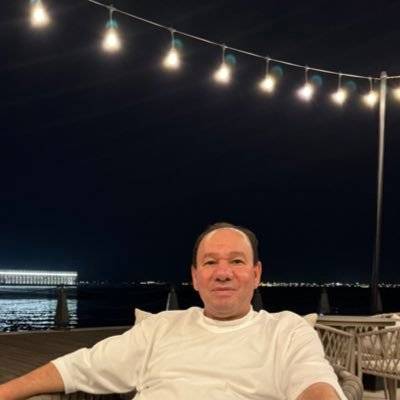What encouraged Abdul Fattah Al-Sisi to use his recent speeches to declare the intensification of his tyranny and oppression? What gave the Egyptian President the reassurance that the so-called humanitarian conscience, and the international community, would continue to support him in his path to crush Egypt’s state, and its past, present and future? What made him mock every proposed initiative and calls for reconciliation and coexistence with his tyranny, in exchange for scraps of freedoms and human rights?
Before Al-Sisi announced that he would continue to rule with violence, exclusion and the killing of his opponents, his special envoy, Abbas Kamel, was sent to Washington to renew his licence for international tyranny. Kamel returned with $195 million in frozen military aid from the US administration. In Cairo, he celebrated the visit of economists from Israel, who came to revive the Qualifying Industrial Zone (QIZ) agreement linking Egypt with Tel Aviv and Washington.
I have said before that Al-Sisi is a political product of QIZ made of Egyptian raw materials, with US-Israeli technology and Gulf financing. As such, he is only interested to the extent that it can be used to revive the proceeds of his project.
Like every classic tyrant, Al-Sisi tries to wrap his crimes against Egypt with a popular veneer, made and polished for him by those who benefit from his tyranny. They gather crowds to cheer for him, laugh on command and chant positive slogans every time he steps on Egypt’s lifeless body that bleeds every day.
Read: Tweets scorn Egypt’s Sisi in renewed online criticism
Al-Sisi wants to tell the world that the people are happy with the crimes and disasters that befall them; that they participate in them, and even ask for more. This is how he looked at his crazy two-day party, when he announced that he despises all initiatives and calls for social and political reconciliation. The crowds cheered for him, making the approach of murder, exclusion and oppression seem like a popular demand. This was embodied by the dramatic moment in which the new Minister of Defence, responsible for the first massacre at the Republican Guard HQ in 2013, received a new rank, pinned onto his shoulders by the public, not his president. This was all done to create the illusion that the people agreed with and participated in the killing.
However, the most dangerous thing that Al-Sisi proposed and asked the people to applaud was his opinion of the popular uprising calling for freedom, democracy and social justice, which he referred to as a setback. He said that Egypt almost rose after 1964, but it was followed by the June 1967 (Six Day War) setback, which eliminated the chances for a renaissance; then this was repeated in 2009-2010, but the January 2011 Revolution came as another setback, hindering Egypt’s progress and rise. He then demanded that the masses applaud him for his weak speech.
A tyrant is defined as “one who attains supreme authority by the use of illegal means of any kind whatsoever, including conspiracies, assassination, oppression, or domination.” In short, a tyrant is a person who has no right to rule under normal circumstances, but has seized power illegally and therefore controls the people’s affairs but not according to the people’s will. Tyrants prosecute them based on their whims, not legitimacy, and they know that they are the usurper and the aggressor, and so put their feet in the mouths of millions of people to stop them from speaking the truth and making reasonable demands.
Read: ‘Al-Sisi’s regime is weak and will not stand up to the accumulated anger’
At this moment, Abdel Fattah Al-Sisi seems confident that nothing can shake his throne, safe in the knowledge that the most that his opponents can do is post social media hashtags, trends and initiatives filled with helplessness and humiliation, lacking both logic and justice. They seem to be nothing more than games for entertainment and leisure. He has made his decisions and said clearly that he will continue his tyranny and oppression, embellished with artificial cheers from the masses, which he calls upon and uses whenever he feels is necessary.
This article first appeared in Arabic in Al-Araby Al-Jadeed on 1 August 2018
The views expressed in this article belong to the author and do not necessarily reflect the editorial policy of Middle East Monitor.

![Egyptian President Abdel Fattah Al-Sisi, 2 August 2018 [Egyptian President Office/Apaimages]](https://i0.wp.com/www.middleeastmonitor.com/wp-content/uploads/2018/08/Egyptian-President-Abdel-Fattah-al-Sisi300618_EPO_00-1.jpg?fit=920%2C613&ssl=1)







